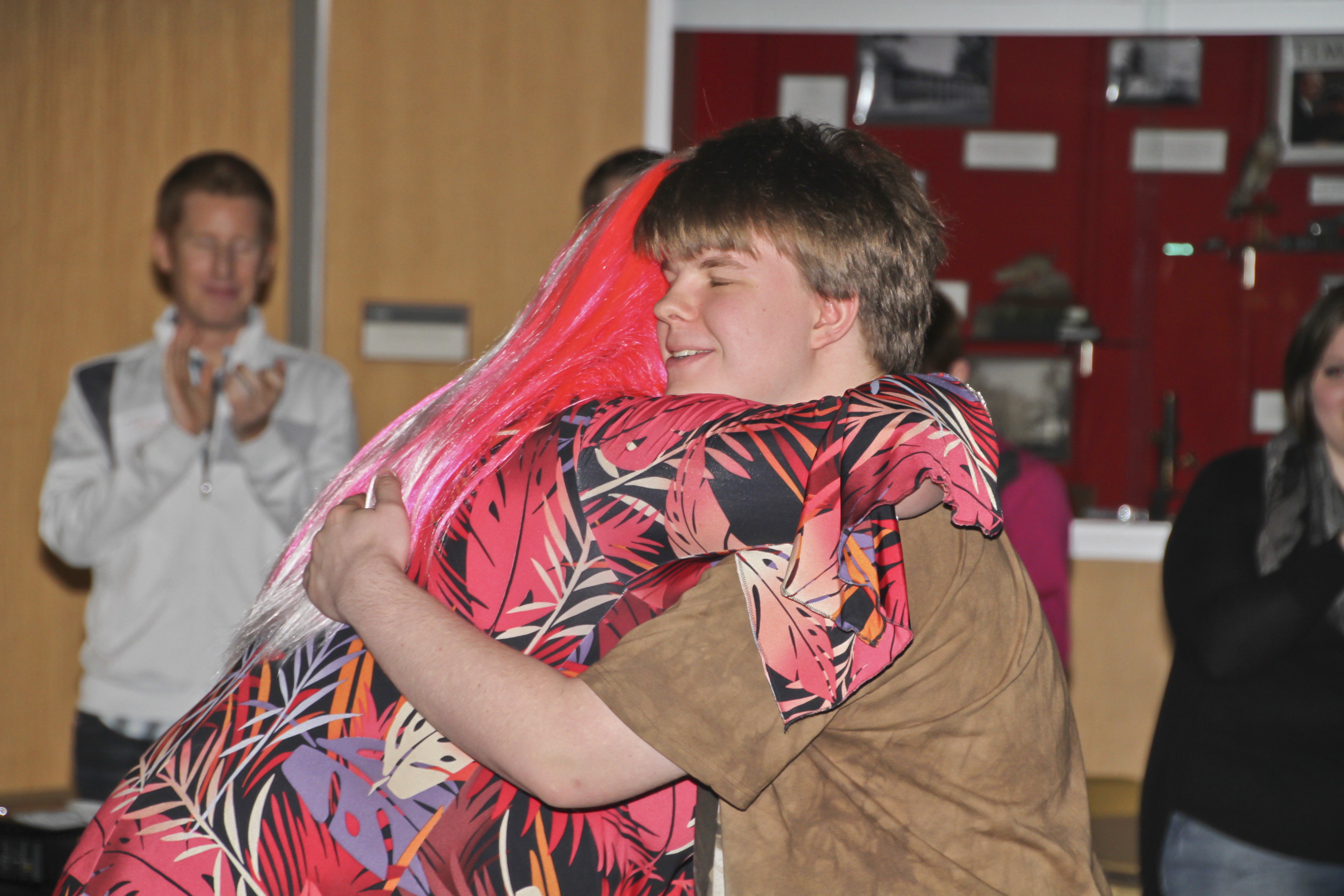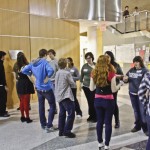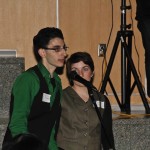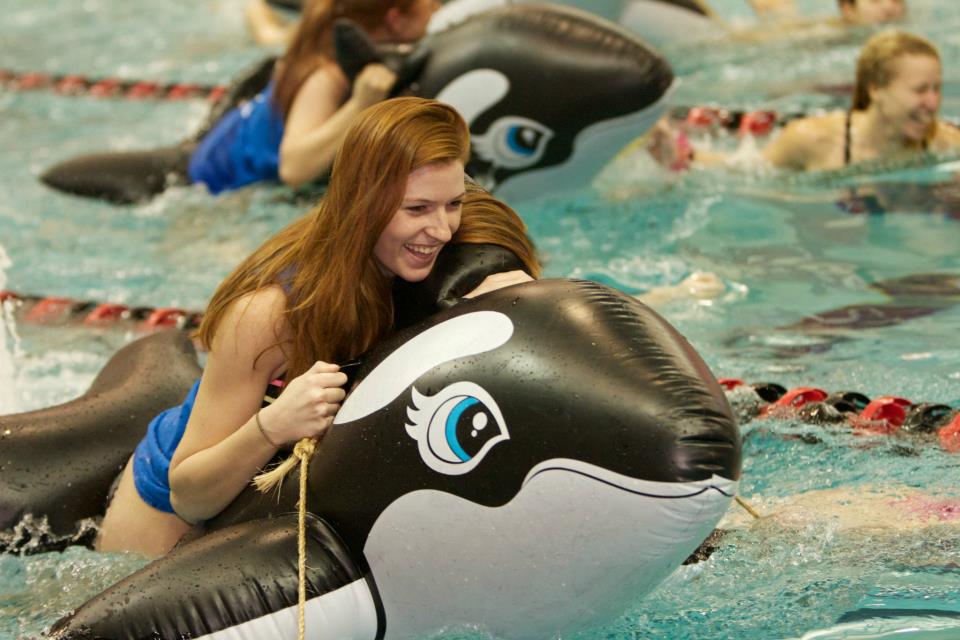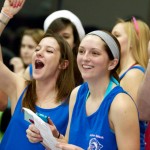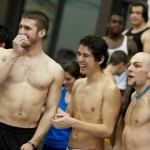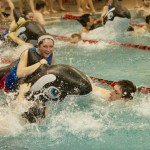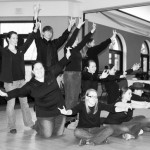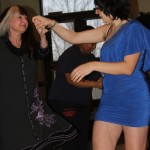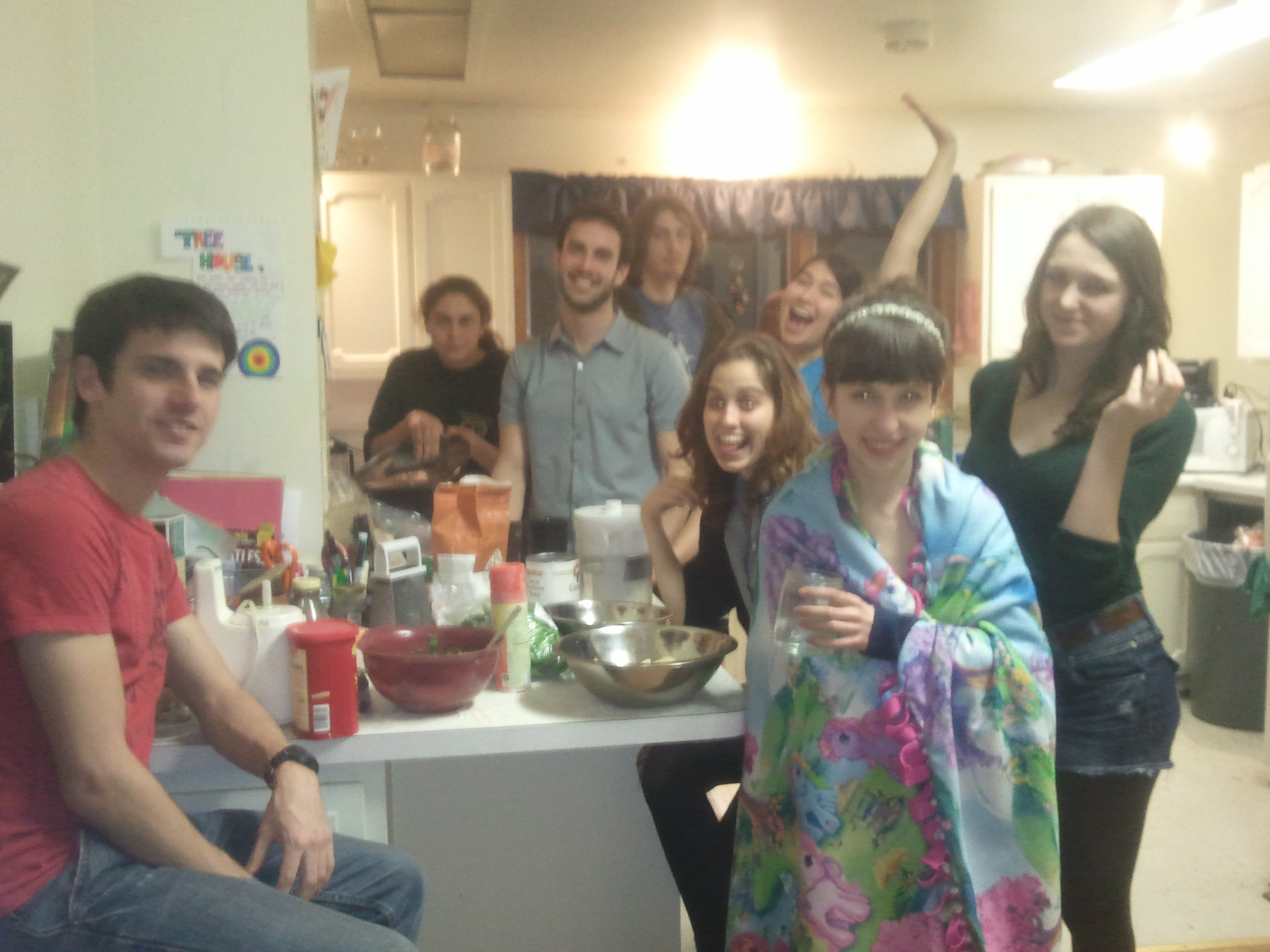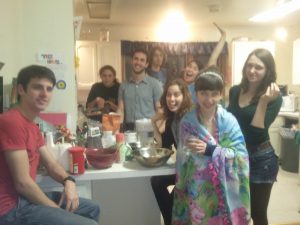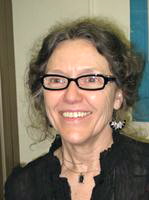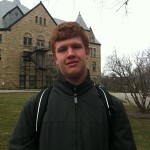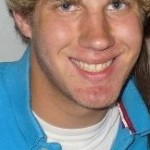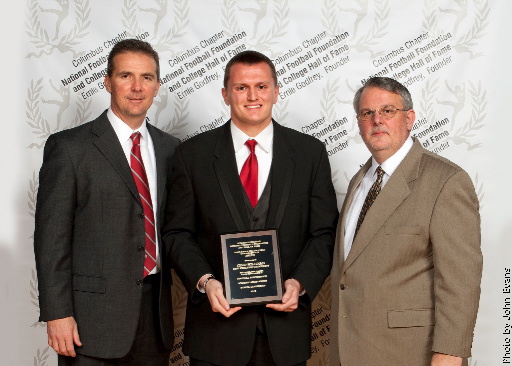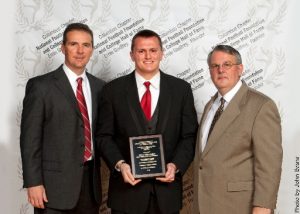“For anyone who burned down their closet, dance with me, loud and careless, wherever we are not invited…Fuck closets. We were made for ballrooms and stages, atriums and the sky.”
That’s how sophomore Gus Wood finished his poem “Whittling: A Coming Out,” the first-place winner at Friday night’s talent show in the Schimmel-Conrades Science Center.
His poem, about the struggles of gay youths to find acceptance of their sexuality, began in a quiet, tentative voice, but as it reached the end he spoke in a thunderous roar.
“I am a real boy, atop a lumber yard of never again,” he shouted, the microphone no longer needed as his voice filled the atrium’s silence. “My heart in a trophy case, for whoever deserves it!”
When he finished, the watching crowd rose, as one, to give him a standing ovation. They stopped only when he sheepishly said he had a second piece, “Open Letter to Superman,” to read as part of his act.
The audience sat back down to listen. They were amazed again by “Open Letter” as its narrator compared his struggle to find acceptance to that of Clark Kent hiding his identity as Superman.
“Shame is feeling a lot like Kryptonite these days. It’s killing me, Clark,” Wood said, his voice capturing the pain of being victimized by bigotry in a way the words alone cannot express. “How do I stop bullets, when they are fired from whispers and sideways glances?”
Wood was one of eight participants in the talent show, which raised awareness for the LGBT community on campus and was organized by OWU P.R.I.D.E., led by Anthony Peddle, and Stonewall Fusion, a Columbus-based LGBT organization. Second place went to Otterbein student Kaleigh Autzen, who sang an aria from Charles Gounod’s opera “Roméo et Juliette.” Third place went to junior Colleen Waickman and freshman Ryan Haddad, who sang an arrangement of “One Less Bell to Answer” and “A House Is Not a Home” with the gender singing roles reversed. Also performing were freshman Riley O’Brien and sophomore Alex Oney, freshman Abby Siegel, CJ Lickert, and sophomore Jenna Culina, using the stage name ‘Dustin Beavers.’
The show began with a short game of speed-friending, where everyone formed two lines facing each other, then had 60 seconds to talk to the person opposite them before moving down the line.
Hostess Alexis Stevens, a Columbus-area drag queen, then took the microphone for her act, a comedy and dance routine. Audience participation played a role, particularly for Public Safety lieutenant Cathy Hursey, who stood guard at the top of the steps; Stevens repeatedly joked that her risqué comments might make Hursey shoot her.
Stevens didn’t focus her audience interaction solely on PS personnel, though. She also walked through the crowd in front of the stage, first pulling freshman Kyle Simon out of the audience for a dance and then planting a lipstick-stained kiss on Haddad’s cheek. Simon and Haddad are interns at OWU’s LGBTIQ Resource Center.
The event winded down after the judges announced the top three finalists around 10:30, though Simon said that other Fusion events often ran until midnight, however this was the first time they’d done a talent show.
Next month’s Fusion event will be Friday April 13. Both Stevens and the event coordinator, Tim Valentine, asked Wood to attend and present again.
“What a wonderful, wonderful opportunity this was. I’m so glad to Ohio Wesleyan for hosting this,” said Stevens in the closing moments of the show. “You guys did an amazing job. Next year we’re going to make sure we get a caravan, we get lots of people signed up, so that we can all come out and we can experience this amazing facility, and Cathy.”
Fusion connects LGBT community and allies
“(Fusion Friday) is a great opportunity to showcase OWU to other students,” said Tim Valentine, a recent graduate of Ohio State University. “It shows that OWU is an open campus and supportive of LGBT students.”
Fusion is a branch of Stonewall Columbus, the LGBT center for central Ohio, which manages Columbus’ PRIDE festival, holds classes, and offers support groups.
Fusion is an event for college-age members of the LGBT community, and allies, to connect with each other outside of schools or bars and nightclubs. According to Valentine, the event emphasizes a drug-free atmosphere.
Fusion was founded in 2008 but didn’t hold events at colleges until last year. The branch held a talent show Friday in the Schimmel Conrades Science Center. This was the branch’s farthest event from Columbus so far.
Anthony Peddle, President of OWU P.R.I.D.E., came up with the idea for the event. “I didn’t expect it would be like this. (I) didn’t expect the space to be so awesome,” said Emily Dunlevie, a Columbus State student on the Fusion board. “(OWU) really pulled it together for hosting for the first time.”
All of the members of the Fusion planning board are from the Columbus area. Logun Baker, who will be taking over coordinating duties along with Ben Maynor next year, first attended a Fusion event in February 2011. He was the President of PRIDE at DeVry University and found Fusion to be “much more laid back and casual than other hangouts.”
This prompted him to join the Fusion board, which is comprised of LGBT leaders from various area schools.
Valentine listed the member colleges as OSU, Columbus College of Art and Design, Capital University, Columbus State University, Otterbein University and DeVry University. OWU is the first member college to host an event.
“It’s a fun atmosphere,” said Sulaina Hrenko, an OSU student who commutes from Delaware. “I get to hang out and socialize with people I wouldn’t usually.”
